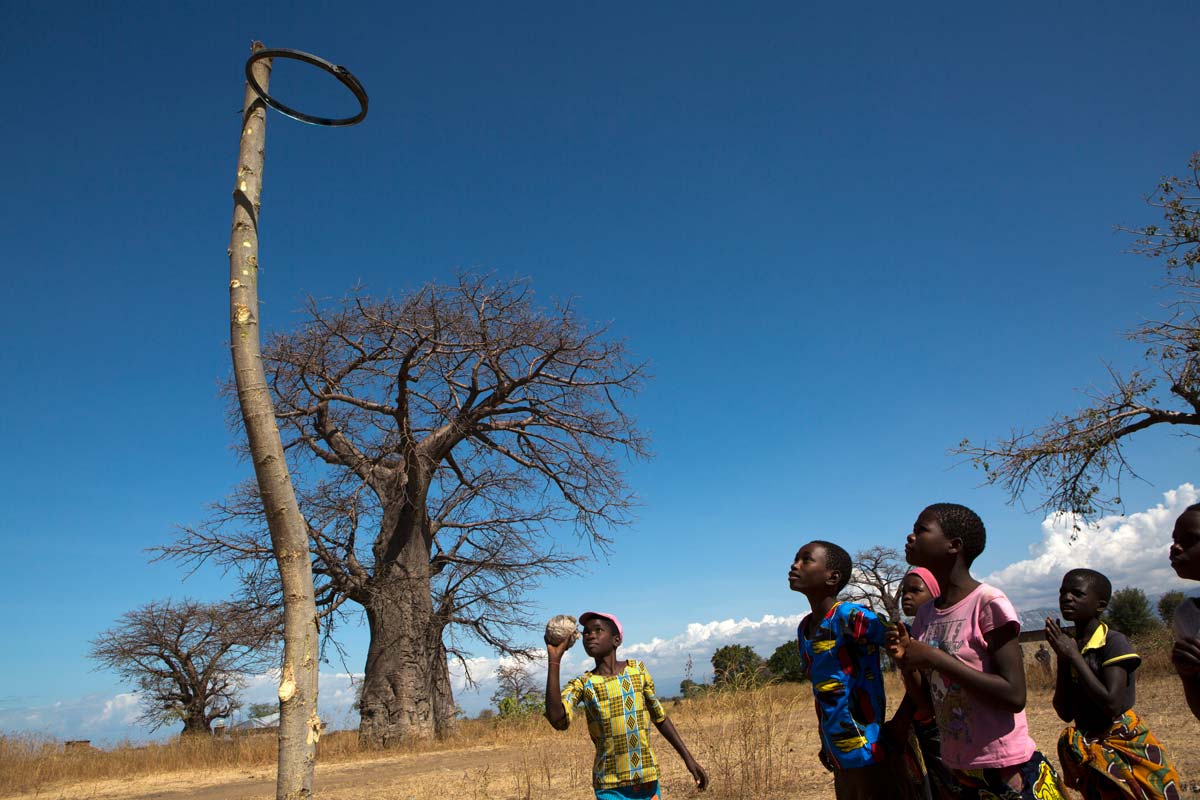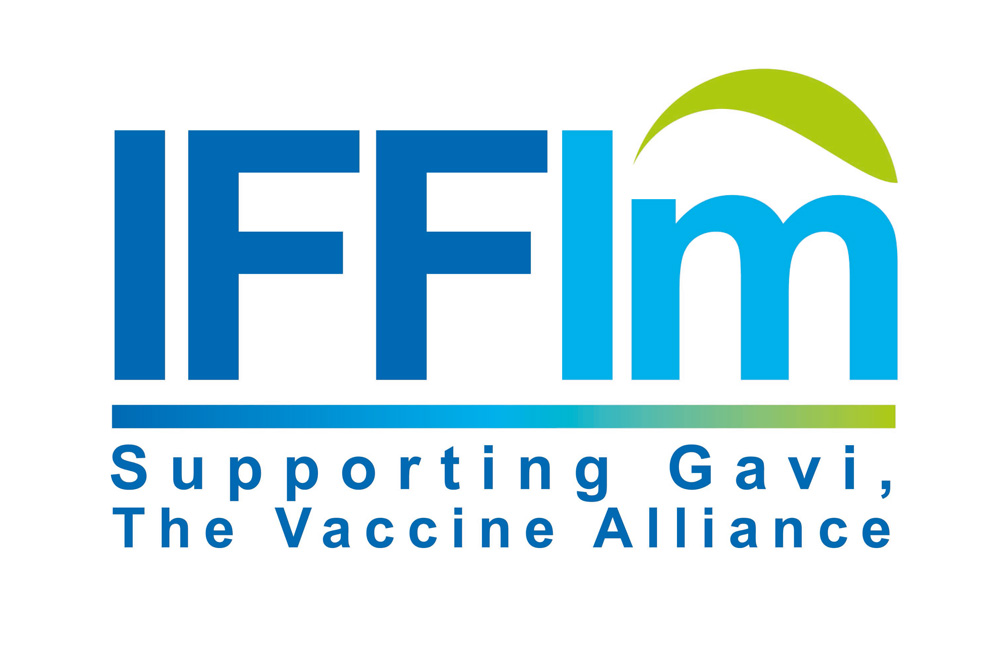After pandemic setback and natural disasters, Malawi school teachers help dial up HPV vaccine uptake
- Impact
- After pandemic setback and natural disasters, Malawi school teachers help dial up HPV vaccine uptake
After pandemic setback and natural disasters, Malawi school teachers help dial up HPV vaccine uptake
3 February 2025

Children play netball under a baobab tree on the shore of lake Malawi near a vaccination centre. Credit: Gavi/2017/Karel Prinsloo
The government’s strategy of training up teachers to explain the science to confused or worried parents is working, learns Ashley Simango.
The government’s strategy of training up teachers to explain the science to confused or worried parents is working, learns Ashley Simango.
By Ashley Simango
Announcements
IFFIm impact: HPV
As of September 2024, IFFIm has contributed over US$ 132.4 million to the HPV programme – more than 22% of Gavi’s overall resource for HPV vaccine.
When Malawi introduced the cervical cancer-blocking human papillomavirus (HPV) vaccine targeting 9- to 14-year-old school girls in 2019, Chipo Kulomba of Blantyre numbered among the many who were initially hesitant to let their daughters receive it.
Misinformed traditional herbalists had warned local mothers off the vaccine, Kulomba recalls. “[But] when our school schoolteachers were trained to explain its benefits in our Chichewa language, we quickly enrolled,” she says.
By 2020, Malawi could boast HPV vaccine coverage among eligible girls of 81%, according to World Health Organization (WHO) figures.

Early gains
Those impressive early gains were heavily due to the health ministry deciding to introduce the vaccine by working with schools in 2019, says Silas Phiri, a health campaigns manager in Malawi’s Ministry of Health.
Not only would schools serve as vaccination sites, but teachers and headmasters were identified as trusted community champions, trained to understand the science and become community advocates of the vaccine. “It was intentional for us to work through these,” says Phiri.
From 2019, the Ministry of Health carried out workshops with teachers to explain the science, listen to community fears and bring teachers on board as clued-in HPV advocates, capable of accurately explaining the benefits of the vaccine in local languages, he explains.
“My daughter and her schoolmates had been booked for HPV vaccine at Ntcheu District Hospital. Our homes were washed off and we ended up as refugees taking shelter in Lilongwe 160km away.”
- Chifundo Molo, mum-of-three, Ntcheu
Disasters strike
So much is at stake. An estimated 4,145 Malawian women are diagnosed with cervical cancer annually, and 2,905 of them die. The figures may be a significant undercount.
And as the HPV vaccine advanced towards the government’s desired 90% coverage threshold, disasters – plural – struck.
The first blow was the COVID-19 pandemic. “Schools were closed, public clinics had restrictions, and I remember the HPV vaccine campaign was not priority for a while,” Kulomba recalls.
The WHO tracking database shows that HPV vaccination roll-out sharply declined in Malawi: from 81% in 2020 to 13% in both 2021 and 2022.
Then came climate-related natural disasters, and the infectious diseases outbreaks that accompany them. Cyclone Freddy rattled Malawi just as it was recovering from the pandemic and seeking to recharge its HPV campaign.
Powered by the warming Indian Ocean waters, floods and landslides pummelled the south and central parts of the country, killing 1,200, and scattering half a million residents in March 2023. The destructive storm made Freddy the longest tropical cyclone ever recorded, according to the European Union’s CMCC climate observatory. Damaging sanitation infrastructure and reducing access to clean water, the storm sparked a wave of cholera outbreaks that continue to trouble Malawi today.
“My daughter and her schoolmates had been booked for HPV vaccine at Ntcheu District Hospital. Our homes were washed off and we ended up as refugees taking shelter in Lilongwe 160km away,” says Chifundo Molo, a mum-of-three in Ntcheu, a district in central Malawi.
“I’m a teacher, and I was the first to get my daughter vaccinated in our community.”
- Eliza Dube, deputy headmistress, Ntcheu Secondary School
Rebuilding
However, when schools stabilised as the pandemic ended, and climate storms ebbed, the HPV vaccination campaign began again to gather momentum.
The re-uptake was “swift and promising,” Phiri says. Across the country, Malawi’s Health Ministry has continued to work closely again with teachers and headmasters to bring parents onboard through consultative meetings with teachers, he says.
“I’m a teacher, and I was the first to get my daughter vaccinated in our community,” says Eliza Dube, deputy headmistress at Ntcheu Secondary School, and Apostolic Faith Mission church leader in Ntcheu District. After being trained by the Ministry of Health, she and her child decided to set an example for community members.
“Seven mothers from my church who had been hesitant to let their daughters take the vaccine quickly enrolled their daughters having seen me, the teacher, enrolling my daughter first.”
There are logistical, as well as social, advantages in schools, which are the major site for HPV campaigns around the world. At schools, 300 children can be vaccinated in a day, Dube points out. “Kids come to school daily. They don’t come to hospital daily.”
The resumption of the vaccine has produced pleasing results so far. WHO says as of 2023, vaccination coverage in Malawi has shot up to 68%. That’s a dramatic climb from 13% a year earlier.
“It’s so sweet to see,” Phiri says. Had it not been for the cyclone and cholera outbreak – coverage would have circled back to 83% “or above” by now, he surmises.
“Seven mothers from my church who had been hesitant to let their daughters take the vaccine quickly enrolled their daughters having seen me, the teacher, enrolling my daughter first.”
- Eliza Dube, deputy headmistress, Ntcheu Secondary School
New allies
But Malawi, like many other countries, remains vulnerable to misinformation. When confronted with healthcare decisions, lots of Malawians seek help at traditional herbalists first, Phiri says. Herbalists, who hold huge influence and sway over life in Malawi, have a record of relying on unscientific and often false information.
A 2021 cross-sectional study on vaccine hesitancy in Malawi revealed: “For the HPV vaccination, rumours, lack of trust in government (confidence), education level, and husband’s approval to vaccinate daughters played predominant roles”.
In a bid to combat one source of rumours, the Ministry of Health is recruiting new allies in its renewed drive to reach 90%. Traditional herbalists and pastors are now being invited to HPV messaging workshops convened for teachers. The aim is to bring together these diverse but highly influential societal actors, says Phiri.
“We are glad with this. As parents we are hearing a uniform message on HPV and cervical cancer relayed by our teachers, prophets, herbalists, delivered in our local Chichewa language. It’s no longer just the medical professionals talking down to us,” says Kulomba.
 | This article is republished from VaccinesWork under a Creative Commons license. Read the original article. VaccinesWork is an award-winning digital platform hosted by Gavi, the Vaccine Alliance covering news, features and explainers from every corner of global health and immunisation. |
Share this article
Restricted Access Library
 The material in this Restricted Access Library is intended to be accessed only by persons with residence within the territory of a Member State of the European Union and is not intended to be viewed by any other persons. The material in this Restricted Access Library is provided by IFFIm for information purposes only and the materials contained herein were accurate only as of their respective dates. Certain information in the materials contained herein is not intended to be, and is not, current. IFFIm accepts no obligation to update any material contained herein.
The material in this Restricted Access Library is intended to be accessed only by persons with residence within the territory of a Member State of the European Union and is not intended to be viewed by any other persons. The material in this Restricted Access Library is provided by IFFIm for information purposes only and the materials contained herein were accurate only as of their respective dates. Certain information in the materials contained herein is not intended to be, and is not, current. IFFIm accepts no obligation to update any material contained herein.
Persons with residence outside the territory of a Member State of the European Union who have access to or consult any materials posted in this Restricted Access Library should refrain from any action in respect of the securities referred to in such materials and are otherwise required to comply with all applicable laws and regulations in their country of residence.
By clicking Access restricted content: DYNAMIC-LINK-TEXT I confirm that I have read and understood the foregoing and agree that I will be bound by the restrictions and conditions set forth on this page.
The materials in this Restricted Access Library are for distribution only to persons who are not a "retail client" within the meaning of section 761G of the Corporations Act 2001 of Australia and are also sophisticated investors, professional investors or other investors in respect of whom disclosure is not required under Part 6D.2 of the Corporations Act 2001 of Australia and, in all cases, in such circumstances as may be permitted by applicable law in any jurisdiction in which an investor may be located.
The materials in this Restricted Access Library and any documents linked from it are not for access or distribution in any jurisdiction where such access or distribution would be illegal. All of the securities referred to in this Restricted Access Library and in the linked documents have been sold and delivered. The information contained herein and therein does not constitute an offer for sale in the United States or in any other country. The securities described herein and therein have not been, and will not be, registered under the U.S. Securities Act of 1933, as amended (the "Securities Act"), and may not be offered or sold in the United States except pursuant to an exemption from, or in a transaction not subject to, the registration requirements of the Securities Act and in compliance with any applicable state securities laws.
Each person accessing the Restricted Access Library confirms that they are a person who is entitled to do so under all applicable laws, regulations and directives in all applicable jurisdictions. Neither IFFIm nor any of their directors, employees, agents or advisers accepts any liability whatsoever for any loss (including, without limitation, any liability arising from any fault or negligence on the part of IFFIm or its respective directors, employees, agents or advisers) arising from access to Restricted Access Library by any person not entitled to do so.
"Relief" for mothers in Bayelsa state as malaria vaccine makes waves
07 November 2025
